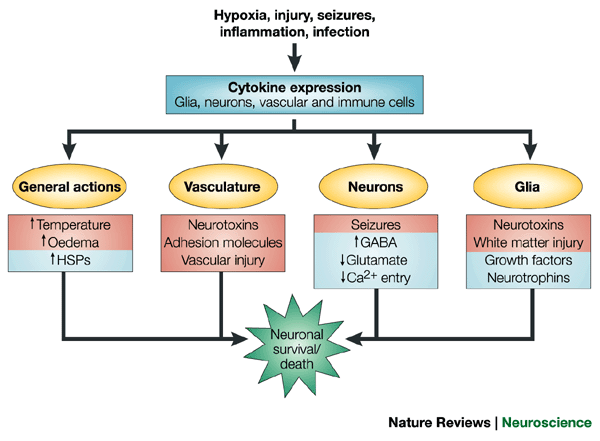The Main Types of Cytokines And in Which Functions
Brief Introduction on Cytokines Cytokines are a broad and loose category of small proteins (~5–20 kDa) that are important in cell signaling. Their release has an effect on the behavior of cells around them. It can be said that cytokines are involved in autocrine signaling, paracrine signaling and endocrine signaling as immunomodulating agents. What we would like to introduce in this post will be related to the main classifications of Cytokines and their function. The main types of Cytokines A.interleukin,IL, which will be effective in promoting thymocyte, T cell activation, proliferation, and differentiation; enhancing the killing activity of Tc and NK cells; inducing fever, participating in inflammatory reactions; stimulating hematopoiesis; promoting immune response; B.Interferon (IFN, which is a broad-spectrum antiviral agent that does not kill or suppress the virus directly. And make cells produce antiviral proteins mainly through cell surface receptors, thereby inhibiting the replication of hepatitis B virus. At the same time, it can also enhance the vitality of natural killer cells (NK cells), macrophages, and T lymphocytes, thereby exerting immunoregulatory effects and enhancing antiviral ability. C.Tumor necrosis factor (TNF) - which can be applied to kill or inhibit tumor cells (direct killing or inhibition, regulation of immune function by TNF, promotes killing of tumor cells by T cells and other killer cells, TNF acts on vascular endothelial cells, damages endothelial cells, or causes vascular dysfunction , causing vascular injury and thrombosis, resulting in local blood flow blockade of the tumor tissue and bleeding, hypoxia necrosis); D.Colony stimulating factor (CSF) - Colony-stimulating factor refers to a cytokine that stimulates pluripotent hematopoietic stem cells and different development and differentiation phases, and hematopoietic stem cells proliferate and differentiate to form corresponding cell colonies in a semi-solid medium. Except for the function of stimulating the proliferation and differentiation of hematopoietic stem cells at different developmental and differentiation stages, some colony-stimulating factors can also promote or enhance the phagocytosis and kill functions of macrophages and neutrophils. E. Chemokines - an important class of immunoregulatory factors that plays a very important role while introducing chemokine/chemokine receptors in antitumor immune responses and autoimmune diseases. F. Transforming growth factor (TGF) - Transforming growth factor-β (TGF-β) is a kind of multifunctional polypeptide growth factor. It plays an important role in cell proliferation and differentiation, extracellular matrix production, angiogenesis, apoptosis and immune system. G. Growth factor The role of growth factors in the human body: 1.Effects on the skeletal system: Promote the production of large amounts of osteoblasts and inhibit osteoclasts. Treatment of bone loose, femoral head necrosis, arthritis, rheumatism and diseases caused by calcium deficiency. 2.Effects on the digestive system: Enhance gastrointestinal function, promote the decomposition of digestive enzymes, increase appetite, treatment of chronic gastritis. 3.Effects on the blood system: Strengthen bone marrow hematopoietic function, promote stem cell production, and then generate a large number of red blood cells and white blood cells. 4.Effects on the respiratory system: strengthen the cell function of the lungs, correcting the blood-blood barrier, eliminating toxins from the lungs, treating emphysema, insufficient supply of lungs, and respiratory diseases. 5.Effects on the endocrine system: promote the growth of human hormones, strengthen the secretion of various enzymes, hormones, enhance kidney function, strengthen water metabolism, and help the body detoxification. 6.Effects on the reproductive system: stimulate the secretion of sex hormones, strengthen the muscles of the genital organs, strengthen the endurance of the sexual organs, open the microcirculation, and accelerate the congestion of the sexual organs. 7.Effects on the immune system: stimulate thymus regeneration, speed up the production of lymphocytes, B cells, phagocytic cells, improve immune function, phagocytosis of viral bacteria and cancer cells, promote the treatment of cancer or tumor. 8.Effects on the nervous system: speed up the recovery of nervous system function, promote brain nerve cells, dendritic growth, reverse brain atrophy, speed up deep sleep, promote the treatment of Alzheimer's disease, neurasthenia, memory loss, neurological headache. All the above-mentioned information is related to the main types of cytokines and major functions of cytokines. Related products: cytokines & growth factors


Your email address will not be published. Required fields are marked *